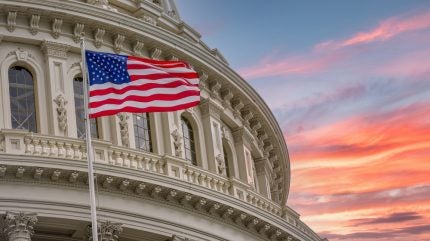
The American Apparel and Footwear Association (AAFA), the National Retail Federation (NRF), the Retail Industry Leaders Association (RILA), and the United States Fashion Industry Associated (USFIA) have submitted a post hearing statement to the chairman of the US International Trade Commission.
The organisations argued the US imposes higher “most-favoured-nation duty rates” on apparel products than nearly any other sector which also factors into the cost competitiveness of source countries.
The coalition highlighted that despite being ineligible for duty free treatment under the GSP, which excludes apparel products, countries like Bangladesh, India, Indonesia, Cambodia and Pakistan remain competitive. This, according to the organisations, reflects the important role these countries play in the broader supply chain diversification efforts of apparel and retailers.
The organisations shared increased costs to both businesses and American customers was evident from the imposition of the section 301 tariffs on products from China. They said: “Tariffs are taxes that are paid by the importer and eventually paid by the consumer.”
The coalition argued that higher tariffs on apparel would have the biggest impact on low and middle-income consumers. Therefore, the coalition pointed out that imposing tariffs on other source countries would be “counterproductive.”
They stated: “The decision to source products from a particular country depends on a variety of factors. These factors include, in no particular order: vertical integration; speed to market; cost competitiveness; product capability; the skillset of the available labour force; geopolitical stability; proximity to raw materials; adherence to quality, social and environmental compliance standards; capacity; supplier relationships; ongoing supplier investments in capabilities like automation for embellishments; and available infrastructure and logistics considerations. Supplier relationships based on longevity and rooted in trust are also incredibly important for our members.”

US Tariffs are shifting - will you react or anticipate?
Don’t let policy changes catch you off guard. Stay proactive with real-time data and expert analysis.
By GlobalDataThe organisations instead urged the US government to accelerate ongoing supply chain diversification efforts through renewal of the GSP programme. They added that the GSP programme should be expanded further to include certain apparel products.
The coalition also encouraged the US government to pursue “high ambition” trade agreements with Indo-Pacific countries that lower tariff and non-tariff barriers, raise standards – including labour and environmental standards, and contain strong dispute settlement provisions.
Earlier this month the AAFA expressed support for the renewal of the Generalised System of Preferences (GSP) Reform Act which is aimed at bolstering the competitiveness of US companies while also supporting global economic development.



